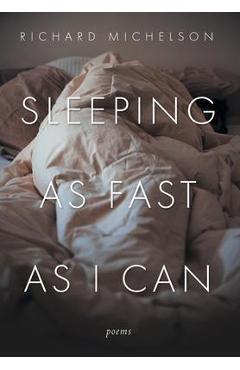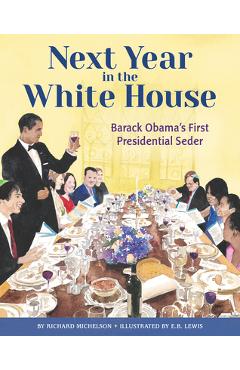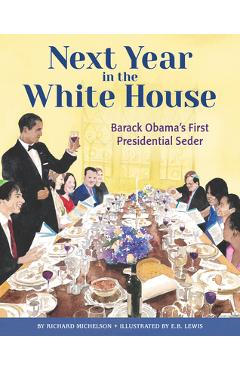Sleeping as Fast as I Can: Poems - Richard Michelson

Detalii Sleeping as Fast as I
Sleeping as Fast as I - Disponibil la libris.ro
Pe YEO găsești Sleeping as Fast as I de la Richard Michelson, în categoria Poetry.
Indiferent de nevoile tale, Sleeping as Fast as I Can: Poems - Richard Michelson din categoria Poetry îți poate aduce un echilibru perfect între calitate și preț, cu avantaje practice și moderne.
Preț: 178.56 Lei
Caracteristicile produsului Sleeping as Fast as I
Comandă Sleeping as Fast as I Online, Simplu și Rapid
Prin intermediul platformei YEO, poți comanda Sleeping as Fast as I de la libris.ro rapid și în siguranță. Bucură-te de o experiență de cumpărături online optimizată și descoperă cele mai bune oferte actualizate constant.
Descriere magazin:
With the rise of anti-Semitism, extremism, political polarization, mass shootings, the fraying of Black-Jewish-Asian alliances, and the loss of personal connections during the age of Covid, where is God, and how can we find the joy and wonder in our lives? How do we come to terms with loss? How can art and language help us to cope with life and honor the dead? How does one act responsibly in a world that is at once beautiful and full of suffering-balanced precariously on the edge of despair and ruin? With humor, anger, and tenderness, Richard Michelson\'s poems explore the boundaries between the personal and the political-and the deep connections between history and memory. Growing up under the shadow of the Holocaust, in a Brooklyn neighborhood consumed by racial strife, Michelson\'s experiences were far from ordinary, yet they remain too much a part of the greater circle of poverty and violence to be dismissed as merely private concerns. In these poems, Michelson pays tribute to his father, a victim of gun violence, and honors his mother\'s surrender to dementia. Still, it is Michelson\'s sense of humor and acute awareness of Jewish history, with its ancient emphasis on the fundamental worth of human existence, that makes this accessible book, finally, celebratory and life-affirming.

Produse asemănătoare
Produse marca Richard Michelson

One of a Kind: The Life of Sydney Taylor - Richard Michelson
![]() libris.ro
libris.ro
Actualizat in 05/06/2025
105.97 Lei

Next Year in the White House: Barack Obama\'s First Presidential Seder - Richard Michelson
![]() libris.ro
libris.ro
Actualizat in 05/06/2025
105.97 Lei

Next Year in the White House: Barack Obama\'s First Presidential Seder - Richard Michelson
![]() libris.ro
libris.ro
Actualizat in 05/06/2025
184.06 Lei

S Is for Sea Glass: A Beach Alphabet - Richard Michelson
![]() libris.ro
libris.ro
Actualizat in 08/04/2025
100.39 Lei

